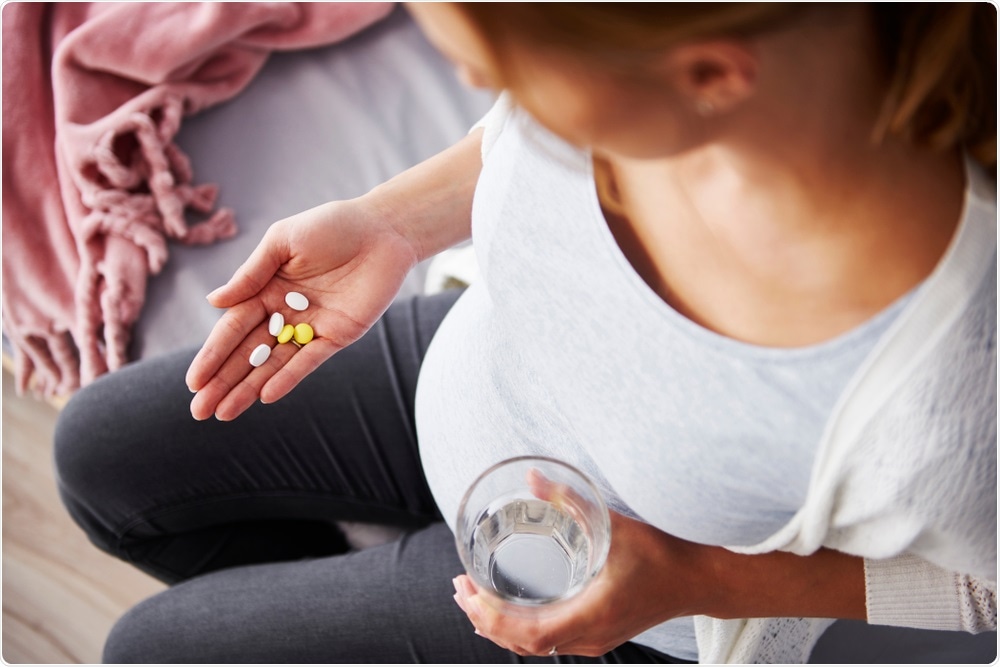At present, approximately 300 million people are living with asthma worldwide. It is estimated that by 2025, another 100 million people will be diagnosed with asthma and that urban lifestyles will play a significant role in this. Among other causes, changes in diets, climate change, and air pollution have all been associated with an increase in cases of asthma.
The Study of Eczema and Asthma To Observe Effects of Nutrition (SEATON) birth cohort was recruited to investigate how a mother’s diet during pregnancy could affect her child’s risk of developing asthma and atopic diseases. The researchers found that high levels of vitamin D and E during pregnancy was associated with a lower risk of the child developing asthma.
 gpointstudio | Shutterstock
gpointstudio | Shutterstock
The study began after there was a sharp increase in the amount of children being diagnosed with asthma in developed countries in 1990. At this time, t increase in cases in the UK correlated with a reduction in the consumption of fresh fruit and vegetables.
We hypothesized that such a change would increase population airway susceptibility to allergens and irritants and thus contribute to the rise in prevalence.
Our early studies pointed to vitamins E and D having a role in airway disease and, since the rise in prevalence had occurred in young children, we proposed that the mother’s diet during pregnancy would influence the child’s risk of developing asthma.”
The study included 2000 pregnant women and the 1924 single children born to them. Overall, the study lasted 15 years. The researchers gathered data through questionnaires, clinical assessments, and routine healthcare data carried out at 1, 2, 5, 10 and 15 years of age.
The amount of vitamin D and vitamin E consumed by the mother’s during pregnancy was compared to the reported wheezing and asthma outcomes.
When the children turned 15, they were asked to fill out a questionnaire containing questions such as “have you had wheezing or whistling in the chest in the past 12 months?” and other questions that enquired whether they had “ever wheezed”, “wheezed in the absence of a cold”, and whether they had eczema and hayfever.
Information on whether the children used asthma medications and whether a doctor had confirmed their asthma diagnosis was also collected.
Vitamin D and E linked to a ‘reduced likelihood’ of wheezing
Although only 39 percent of the 1924 original children returned the questionnaires and some participants had withdrawn from the study, results were found to be “consistent with the findings of several systematic reviews” that previously reported that higher maternal vitamin D and E intake during pregnancy was associated with a “reduced likelihood” of childhood wheezing.
This new cohort study found that “lower maternal vitamin D intake during pregnancy was associated with an increase in childhood wheezing between 2 and 5 years” as well as an increase in wheeze and asthma incidence at the age of 10.
Additionally, in the last year of the study, 12.8 percent of the participants reported using asthma medication.
An increased incidence of childhood wheezing at the ages of two and five and an increase in asthma at the age of nine was associated with lower levels of maternal vitamin E during pregnancy.
The study states although its longitudinal analyses showed links between maternal intake of vitamin E and vitamin D and wheeze and asthma outcomes in the children’s first 15 years of life, at the age of 15 the data “demonstrates no associations between maternal vitamin D or E and current wheeze or asthma outcomes.”
Environmental and dietary factors further influence asthma development
It hypothesizes that a mother’s intake of vitamin D and E during pregnancy may influence the incidence of childhood wheeze and asthma up to the age of 10, but outside exposures and influences, perhaps environmental or dietary, are more likely to be the cause of asthma in children as they progress through puberty and into adulthood.
The results also suggest that maternal diet is more important in influencing a child’s risk of developing wheeze or asthma than the child’s diet.
The main implication of the finding is that while optimizing maternal diet during pregnancy may lesson the high burden of respiratory symptoms in young children, it is likely that any benefit to offspring would diminish and then disappear with the passage of time.”
The benefits of this particular study lie in its larger size when compared with previous studies, and the fact that it studied maternal intakes of both vitamin D and E over blood concentrations of the vitamins.
However, the study was not immune to limitations. Participation in the study was “associated with significant biases”, but the authors were confident that these biases would not produce errors “masking the findings”. Additionally, the researchers were not able to gather data on what age the children were when they were diagnosed with asthma.
The study states clearly that is has “confirmed” that there is indeed an association between childhood asthma and low intake of vitamins D and E during pregnancy. However, despite the significant and worrying increase in asthma incidence in 1990, there is now evidence that asthma incidence in the UK is decreasing.
Source:
Devereux, G., et al. (2018). Maternal vitamin D and E intakes in pregnancy and asthma to age 15 years: A cohort study. Pediatric Pulmonology. doi.org/10.1002/ppul.24184.